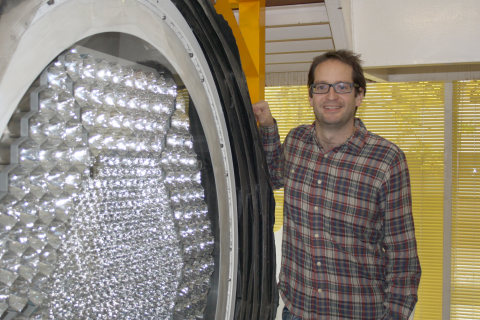The participants will have the opportunity to build a muon detector using plastic scintillators and silicon photomultipliers. The students will go through the basics of particle detection and will have the chance to understand what the role of each component in the detector is. They will figure out how we can catch the particles we want to observe and reject those we want to avoid. They will learn about light detection, properties of materials, and readout electronics working hand by hand with IFAE researchers.
Only when we understand how the detector work in detail we can then go out and ask nature about the behavior of cosmic rays. Only then we can think of other applications. Building and understanding detectors are crucial to making experiments with them. And to trigger your imagination.
The detector we are going to build is meant to be portable so that it can be taken outside and see what it can tell us about everyday life. The students will also design and perform experiments to understand the behavior of muons and cosmic rays in the atmosphere.
Come and build your own muon detector and learn how particles interact with matter, how they are created and destroyed in the atmosphere, what is a particle shower, and how particle detectors work. Be an experimental physicist: design your setup, answer your questions, ask new ones.
Learning objectives
- Understand the process of building a detector;
- Understand the uses and knowledge behind the cosmic rays;
- Discover the mysteries that an astrophysicist is trying to solve about cosmic rays;
- Determine the principles of particle detection and their use to detect them.
Matching profiles
Students interested in particle physics or astrophysics. Students willing to spend time in the lab doing experimental work with a clear goal but not a unique path to achieve it. It would be nice to have a working group with a wide range of skills & interests: some with computing skills, some with experimental & electronic interests, some more inclined to theory. Knowing how to work in a group is a must.
Required materials
A laptop would help but it is not required.




